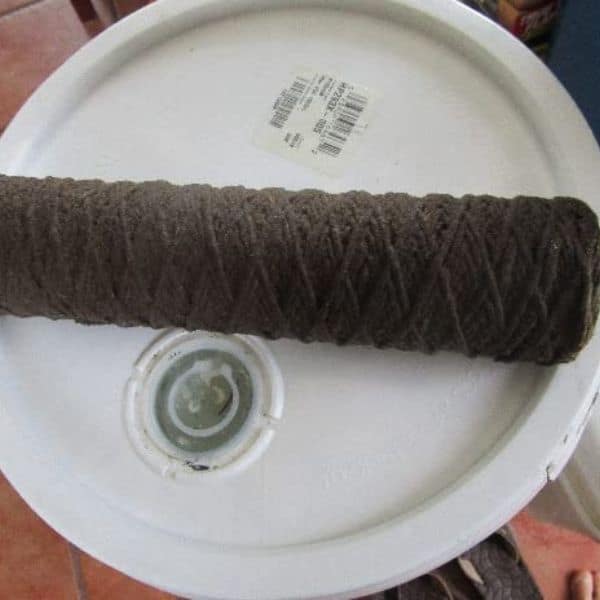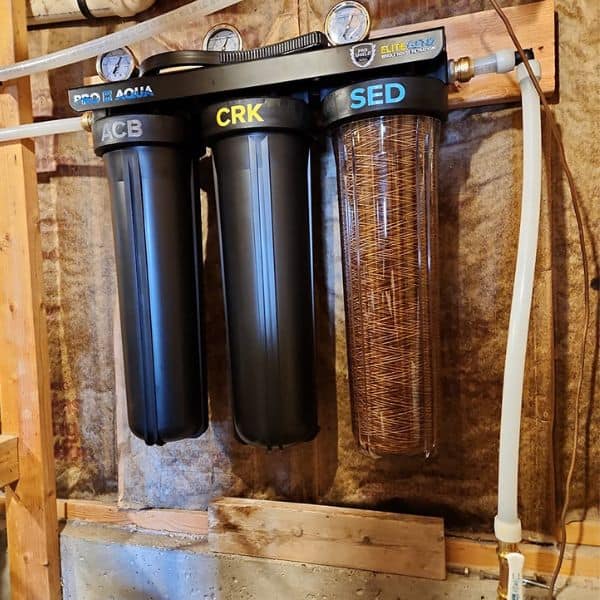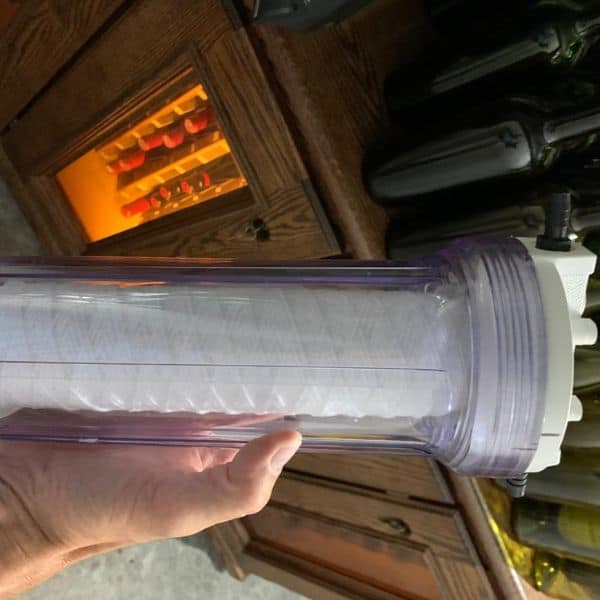When Should You Change a Well Water Filter?
If you use your well water for drinking or cooking purposes regularly, changing the filter every three months is recommended.
However, an annual replacement may suffice if you only use it occasionally or for outdoor activities such as gardening or car washing.
Additionally, if the pressure tank of your well water has a high flow rate or if the area has high levels of sediment and debris in the groundwater source, more frequent changes may be necessary. Here is a list of the best whole house water filter for well water that you can check out.

Signs That You Need to Change Your Well Water Filter
If you notice the following signs, then it is time to change your well water filter.
Poor water quality
Poor water quality indicates that you need to change your well water filter. If you are experiencing an unpleasant taste or odor in your drinking water, it may be time to replace the filter. A dirty, clogged filter can reduce the effectiveness of your well water system and decrease overall water quality.
Reduced Flowrate
If you notice a reduced flow rate from your faucet or showerhead, it could indicate that your whole house water filter needs to be replaced. A clogged or dirty filter can cause a reduction in flow rate and lower the quality of the drinking water.
If you ignore these signs and don’t change your well water filter, you may expose yourself to harmful contaminants such as bacteria, viruses, chemicals, and other pollutants.
A drop in water pressure
When a filter becomes clogged with dirt, debris, or other contaminants, it restricts water flow. As a result, you may experience low water pressure when using faucets or appliances connected to your well pump system. If addressed, this issue could lead to more severe problems like damaged pipes or decreased lifespan of well components.
Changing your well water filter regularly will improve your water quality and ensure optimal performance for your entire system.

Factors That Affect the Life of Your Well Water Filter
Several factors can affect the life of your well water filter. Understanding these factors can help ensure your filters function optimally and protect you and your family from contaminants.
Water Quality
Water quality is an essential factor that affects the life of your well water filter. The quality of water available in different regions and areas varies, and it’s important to consider these factors when choosing a filtration system. The type of contaminants present in the water will determine the efficiency of your well water filter.
It is, therefore, crucial to test your well water regularly to determine its quality before choosing a suitable filter. Investing in a good-quality filter that suits your specific needs will improve the lifespan and performance and ensure clean drinking water for you and your family.
Water Usage
The more you use your well water system, the faster your well water filter will become clogged with sediment, dirt, and other impurities in the groundwater. If you have a large household or use a lot of water for activities such as gardening or washing cars, your well water filter will need to be replaced more frequently than someone who uses less.
To extend the life of your well water filter, it’s important to monitor your household’s overall water usage and take steps to conserve where possible.

FAQs
How to Replace Your Well Water Filter?
Fortunately, replacing your well water filter is a simple process that most homeowners can do.
-The first step is to turn off the water shut-off valve that brings in the well water.
-Next, locate the filter housing unit and release any pressure by opening up the nearby faucet.
-Once pressure has been released, remove the housing unit using a wrench or pliers.
-After removing the old filter inside its housing unit, clean out any debris or gunk left behind before inserting your new replacement filter.
-Check for compatibility with your specific model before purchasing a new one.
Do All Well Water Filters Require Replacement?
Yes, all well water filters require replacement at some point in time. The replacement frequency depends on several factors, such as the type of filter installed, the level of contamination in the well water, and how much water is used daily.
Generally speaking, most well water filters must be replaced every three months to two years, depending on their quality and usage. However, reverse osmosis filters use multiple filter stages and last longer.
What Happens If You Don’t Replace Your Well Water Filter As Required?
A clean filter can lead to good water quality. Your filter removes sediment, dirt, and other impurities from your well water before it enters your home. If these impurities are not filtered, they can lead to discolored or foul-smelling water. In some cases, they may even pose health risks.
In addition to poor water quality, neglecting to replace your well water filter can damage your plumbing system and appliances that use the well water. Over time, sediment build-up can cause pipe blockages and reduce their effectiveness.
Can I Change the Well Water Filter On My Own?
Changing the sediment filter or some other filter is not difficult, but it requires some basic plumbing knowledge and tools. Before attempting to change your well water filter, you must read through your owner’s manual and understand how the system works. This will help you determine which type of filter is required for your specific system.
How Long Do Well Water Filters Last?
The lifespan of well water filtration systems can vary depending on several factors, including the filter type and the usage level. The most common types of well water filters include sediment filters, carbon filters, reverse osmosis systems, and UV disinfection systems.
Sediment and carbon filters typically have a lifespan ranging from 3-6 months before needing replacement. Reverse osmosis systems can last up to 2 years with proper maintenance, while UV disinfection systems can last up to 5 years before requiring replacement bulbs.
Conclusion
Having a well water filter is important to maintaining the quality of your home’s water supply. It should be done every three to six months or when there are sudden changes in the water’s taste, smell, or color. If high levels of iron or sulfur are detected in the water, then filters should be changed more frequently. The best way to know when to change your filter is to keep track of when it was installed and its performance over time.

